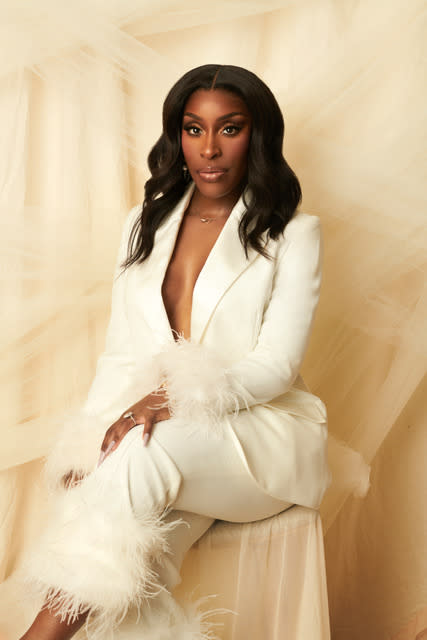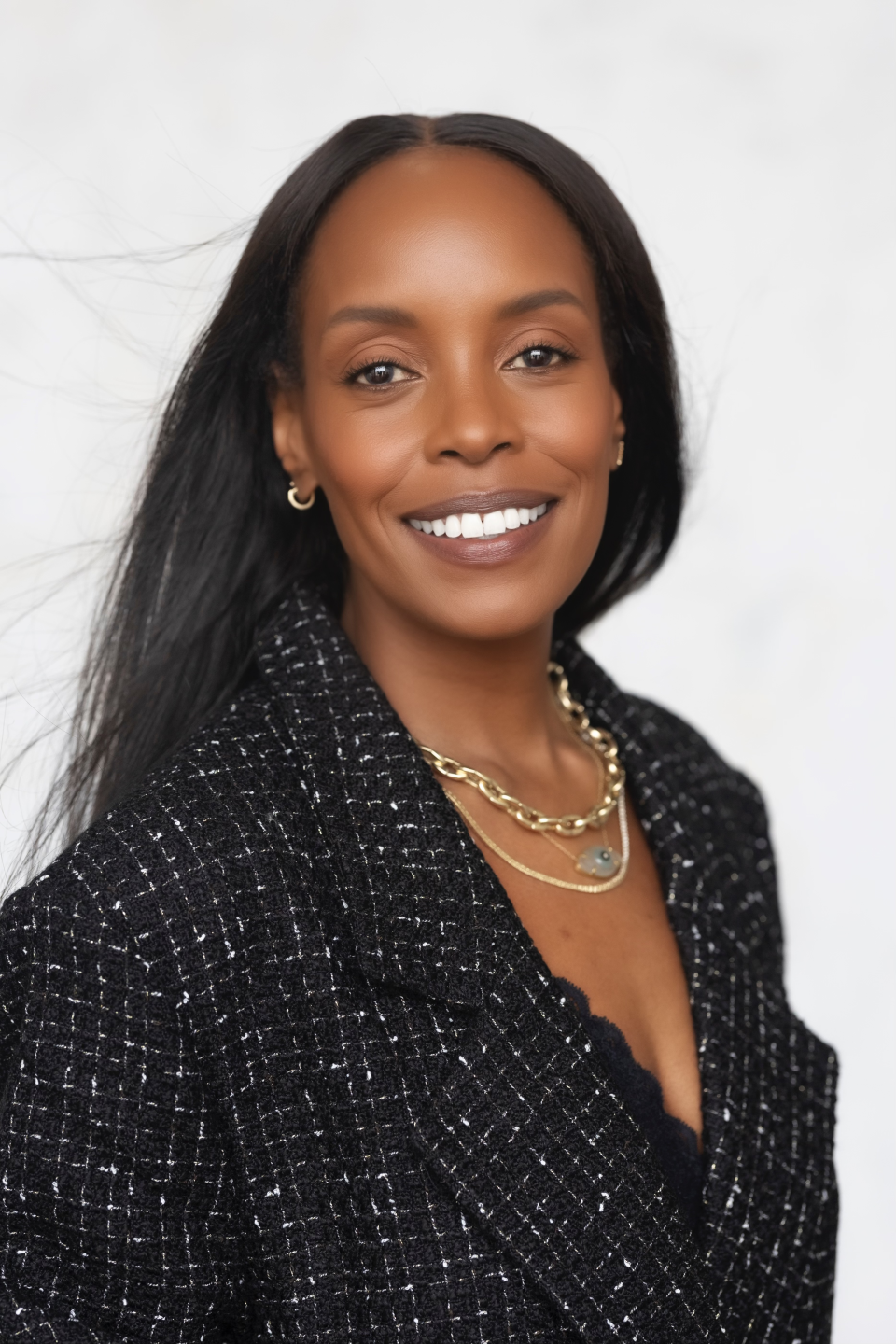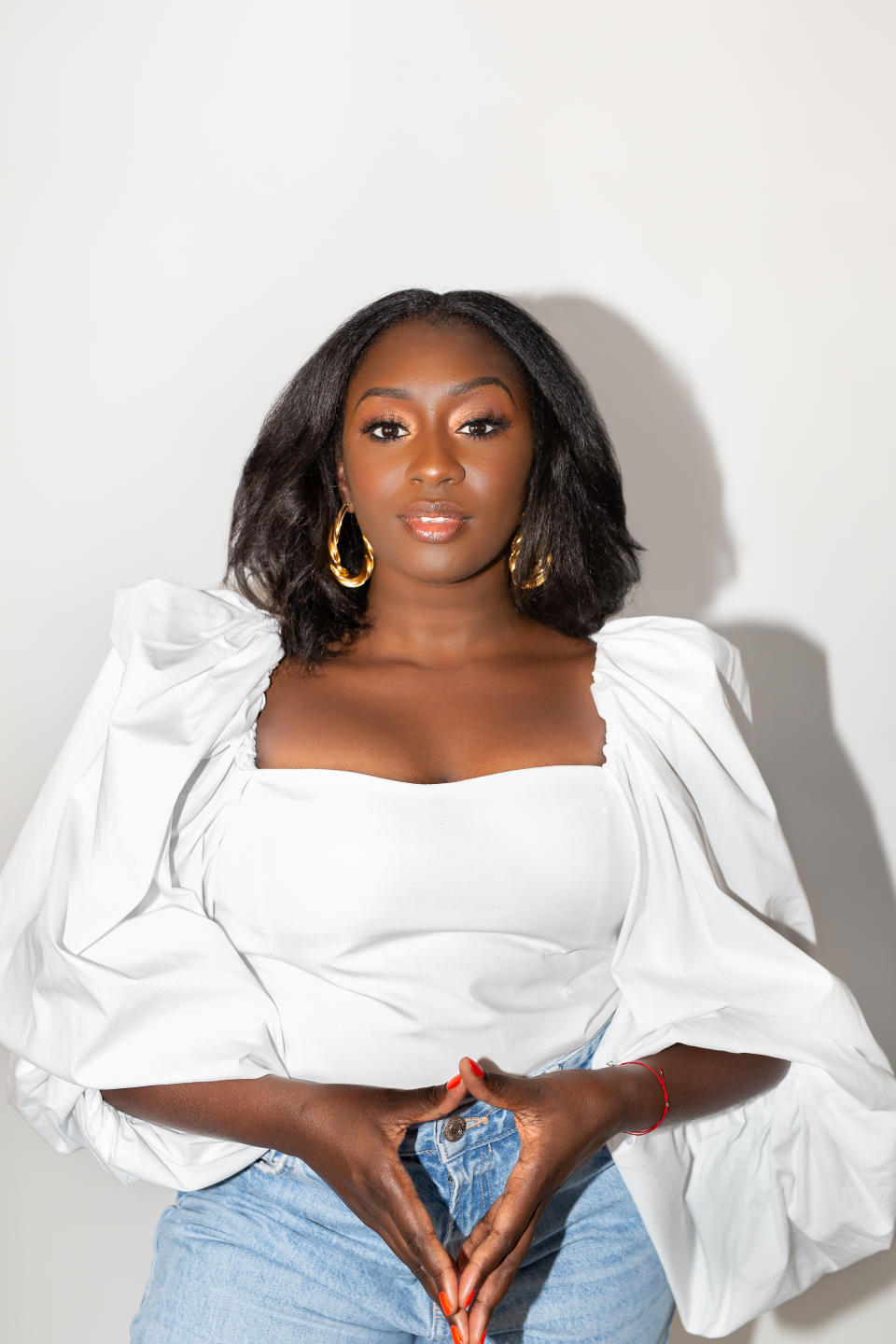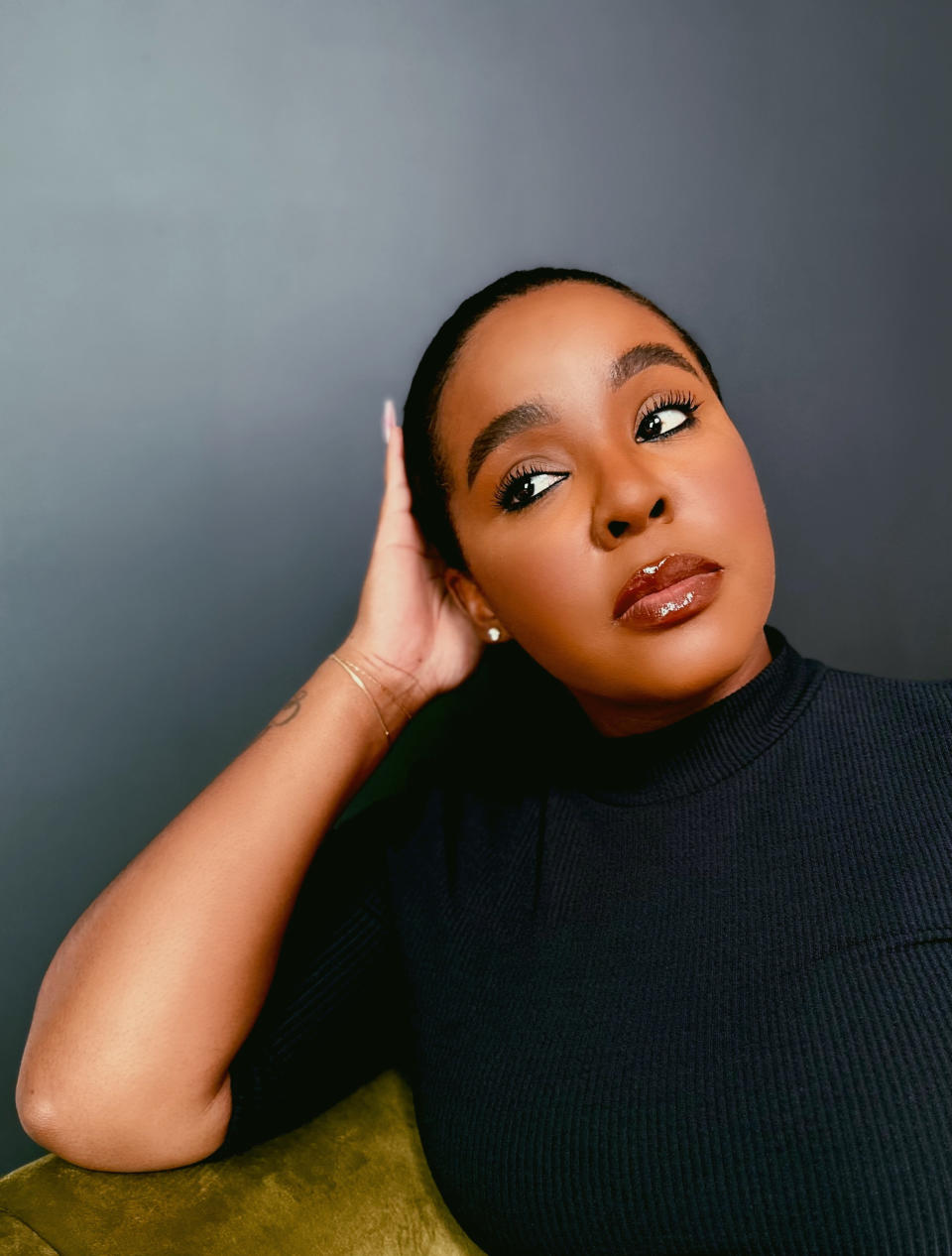Who’s Afraid of Investing in Black-owned Beauty Brands? How the Beauty Industry Is Failing Black Entrepreneurs

One step forward, two steps back.
That’s the sentiment shared by Black beauty entrepreneurs and executives, who report that the beauty industry has fallen short on its promises to better support Black founders in 2020 following the murder of George Floyd by a Minneapolis police officer.
More from WWD
The biggest pain point: Access to capital has dried up considerably. Earlier this year, Crunchbase reported that funding of Black-owned brands dropped 71 percent to $705 million in 2023 — the first time since 2016 that the figure didn’t exceed $1 billion. Funding in the U.S. overall, Crunchbase reported, declined at roughly half that rate.
“After the murder of George Floyd, there was a lot of momentum, and a lot of eyes and focus on supporting founders of color and Black founders in general,” said Alisa Carmichael, partner at VMG Partners. “The holistic level of support has changed. There’s more of a debate on diversity in general than there was four years ago, and that’s having an impact.”
The dichotomy is that Black consumers’ beauty spending is outpacing other cohorts — and the industry overall — in the U.S. Black consumer spend in beauty hit $9.4 billion in 2023, according to NIQ. Dollar and unit sales both outpaced beauty spend in the U.S. overall, as well as household sizes. They also are growing more quickly in categories such as cosmetics, nail, facial skin care and hair care, with significantly more spent in-store than online.

Carmichael also oversees VMG’s Parity Collective in partnership with the Fifteen Percent Pledge’s Aurora James, an investment initiative for “BIPOC-founded businesses that are on a journey to become iconic consumer brands,” per its website. Its current beauty portfolio includes Melanin Haircare, BeautyStat and Danessa Myricks Beauty.
Nodding to that partnership, Carmichael said, “It’s a reminder that there are still people doing the work and pushing to make sure that we understand how to help Black-owned businesses be successful. It used to not be as much of a battle as it is now.”
That partnership is one of a dwindling number of investors dedicated to Black-owned brands. Last year, the Edward Blum-helmed American Alliance for Equal Rights sued the Fearless Fund, an investment firm that focuses on women of color-founded businesses, alleging that the fund was in violation of the Civil Rights Act of 1866.

“We’re seeing what happened with Fearless Fund, we’re seeing what’s happened with affirmative action, and we’re seeing the programs and brands who made these commitments are now scaling back,” said Kendra Bracken-Ferguson, founder and chief executive officer of BrainTrust Founders Studio and the accompanying venture capital arm, BrainTrust Fund. “Less than 1 percent of venture funding is going to diverse audiences, and even less than that to Black women.”
Black founders echo the stats put forth by investors, and say that there is waning interest in their brands from the financial community despite the viability of their businesses.
“When I started Forvr Mood, I heard rumblings of what it actually means to be a Black founder getting outside investment,” said Jackie Aina, beauty content creator and the brand’s cofounder, who is currently seeking funding for her brand. “It’s been really, really challenging.”
Forvr Mood, which makes both fine fragrances and candles and is sold at Sephora, is expected to surpass eight figures in sales this year, and sold more than 30,000 units of product in its first week. “We’ve been fully self-funded, we’ve never taken any outside investment whatsoever. We have the growth, numbers that predict the trajectory of what is far beyond exceptional,” Aina said.
Despite the success of the brand and the buoyancy of the fragrance category overall, raising money has been an uphill battle. “Jackie has a track record of selling products and doing brand collaborations,” said Denis Asamoah, the brand’s cofounder. “Our funding journey started in 2023, we needed more funding to scale. A lot of investors I spoke to were excited about the business, and then went ghost.”
Aina’s experience seems to be the rule rather than the exception. Across the board, founders report that the size of the opportunity isn’t recognized enough by the financial community.
Danessa Myricks Beauty closed a funding round in 2022 led by the Parity Collective, and its namesake founder noted the challenges in finding the right partners. “The funding that we received at the end of 2022 was mostly from a firm that was intentional about its efforts with the Fifteen Percent Pledge,” Myricks said, noting that despite the success of brands like Fenty Beauty, investors were generally hesitant. “If you see that success and still don’t want to invest, then you have other reasons beyond revenue, which is scarier.”
In other cases, the financial community doesn’t always recognize a brand’s broad appeal or viability. “Investors are looking at a very one-dimensional profits-and-losses perspective, that 15 percent of the population doesn’t equal 10-times revenue growth, which is so not true,” said Diarrha N’Diaye-Mbaye, founder and CEO of Ami Colé. The makeup line is sold at Sephora and is known for its lip products, skin tint and mascara.
“If you’re able to concentrate and provide the right resources and look at understanding what marketing to this cohort actually means, you’ll see where this consumer is spending her dollars,” said N’Diaye-Mbaye. “And I’m a Black founder, but a good mascara is a good mascara — not just for 15 percent of the country.”
Indeed, the misperception of Black-founded brands being marketed only to and for Black people is one that has existed for years, further exacerbating access to money.
“We’ve seen great businesses in our ecosystem experience challenges securing capital, even though they’ve proven product market fit and ability to scale. As a beauty founder of almost 23 years, access to capital was always my biggest challenge,” said Nyakio Grieco, cofounder of Thirteen Lune.
Grieco previously founded Nyakio Beauty, which sold to Unilever in 2017. Her current business, Thirteen Lune, is a retail concept that dedicates 90 percent of its shelf space to BIPOC brands, and currently has a national partnership with JCPenney, where she’s seeing the appetite for those brands grow. “We’re grateful for the many key learnings,” Grieco said, noting “the potential to expand domestically and globally as we’ve seen the enthusiasm for what we’re building.”
A serial entrepreneur, Grieco attributed the increase in consumer interest to the fact that many shoppers have been largely ignored by mainstream beauty companies. “The fastest-growing segment of entrepreneurs currently in the U.S. is Black women, and the slowdown is also deeply affecting the consumers who build our economy,” Grieco said. “It is good business to engage with and serve a multicultural consumer. By 2040, the majority of the U.S. population will identify as multicultural.”
One founder attributed that disparity to lack of representation in the financial sector. “When we pitch investors, 98 percent of the time, they don’t look like us,” said Devin McGhee Kirkland, cofounder and CEO of wellness brand Deon Libra, who has been seeking funding for more than a year. “We’ve been asked by retailers and investors alike why there are no white people in our pitch deck. Do they ask that to white founders who have no Black people in their decks?”

Moreover, even when a brand is successful, challenges remain. “We have on paper that we could double our business, and I had an investor tell me that if we couldn’t raise more [money], we should shut down,” N’Diaye-Mbaye said. “Thinking back to what the mindset was in 2020, that’s really disheartening.”
For its part, Pound Cake, which won Pharrell Williams’ $1 million Black Ambition Grant in 2023 and secured a retail partnership with Ulta Beauty, still faced challenges despite the attention the brand was getting.
“Even after we won the $1 million, which we tried to use as a jumping-off point to raise, it didn’t matter that we beat out other tech companies or CPG companies. It didn’t change anything,” said Camille Bell, the makeup brand’s CEO and cofounder. “We won the grant, we were about to launch into Ulta Beauty, and it was still not good enough. The goalposts continue to move, and we’ve been pitching since February.”

In 2020, grants for Black-owned beauty businesses proliferated, as well as retailer incubation programs. Those include the Glossier Grant program, Ulta’s Muse Accelerator program, and Sephora’s Accelerate program and the recently launched Dream Makers Founder Grant, founded by Briogeo founder and CEO Nancy Twine. Even those, founders said, seem to become harder to come by.
“Four years after the murder of George Floyd, a lot of the grant programs have died off,” said Kirkland. “And those grants are never enough. A $25,000 grant might cover overhead for a month or two, but that doesn’t fulfill purchase orders and that doesn’t pay your contractors.”
One founder, who spoke to WWD on the condition of anonymity, had cautionary advice for other Black founders. “You cannot rely on just being a Black founder with a good idea. You have to have a great idea, you have to have a lot going for you, as well as retail support,” the founder said.
That founder took a pessimistic view of the future. “In 2020, [financiers and retailers] went in thinking that a little support would be all that was needed, and the ongoing support these brands actually need is not paying off as quickly as they’d like,” the founder said. “That has made the support dwindle. They’re not excluding anyone that hasn’t been historically excluded, it’s status quo. And a lot of brands have suffered because of that.”
Best of WWD

 Yahoo Finance
Yahoo Finance 